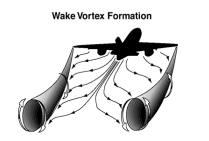President Signs into Law $4.5 Million Addition for
SOCRATES
 Flight Safety Technologies Inc. has announced that
the President has signed into law as part of the FY 2003 Omnibus
Appropriation Bill, a $4.5 million addition to the NASA budget for
Flight Safety's Project SOCRATES.
Flight Safety Technologies Inc. has announced that
the President has signed into law as part of the FY 2003 Omnibus
Appropriation Bill, a $4.5 million addition to the NASA budget for
Flight Safety's Project SOCRATES.
Flight Safety expects these funds will be used for continued
funding of its contract with the federal government for research,
development and testing of SOCRATES as part of a NASA/DOT/FAA
development of a wake vortex monitoring and advisory system for use
at major airports. Before funds become available to Flight Safety,
the company must provide a technical and cost proposal describing
the scope of work to be provided under the contract to NASA and
the Department of Transportation.
 In a separate action, Flight Safety recently
received $1.2 million in Fiscal Year 2002 contract funding for
development of SOCRATES and has been informed by the DOT/Volpe
National Transportation Systems Center that an additional $1
million in contract funding is anticipated to be made available to
the company by the end of February 2003. These funds are being
applied by Flight Safety Technologies to a major test of the
technology planned for Denver International Airport during the
summer of 2003.
In a separate action, Flight Safety recently
received $1.2 million in Fiscal Year 2002 contract funding for
development of SOCRATES and has been informed by the DOT/Volpe
National Transportation Systems Center that an additional $1
million in contract funding is anticipated to be made available to
the company by the end of February 2003. These funds are being
applied by Flight Safety Technologies to a major test of the
technology planned for Denver International Airport during the
summer of 2003.
Project SOCRATES represents a patented new technology that is
being developed by Flight Safety to detect and track hazardous air
disturbances known as "wake vortex turbulence," created by
departing and arriving heavy aircraft in the vicinity of airports.
Because of the potential safety hazard to following aircraft
presented by wake turbulence, the FAA increases spacings
between arriving and departing aircraft, based on the respective
weights of leading and following aircraft. These spacing rules,
based on worst-case conditions, often result in unnecessary delays
under conditions in which wake turbulence dissipates quickly or is
carried by wind out of the flight corridors. Precise knowledge of
the location and motion of the wake vortices could give air traffic
controllers the flexibility to safely shorten the arrival and
departure spacing intervals when conditions permit, potentially
reducing passenger delays, taxiway queues, and aircraft fuel
consumption, while also enhancing safety by identifying a real
potential hazard.
 Flight Safety is developing its Socrates
technology in conjunction with Lockheed Martin Corp., of Syracuse,
NY. Anteon Corporation, based in Mystic, CT, and Fairfax, VA, is
also supporting this effort.
Flight Safety is developing its Socrates
technology in conjunction with Lockheed Martin Corp., of Syracuse,
NY. Anteon Corporation, based in Mystic, CT, and Fairfax, VA, is
also supporting this effort.
Samuel Kovnat, Chairman and Chief Executive Officer of Flight
Safety Technologies, Inc. stated, "This new additional funding will
facilitate further demonstrations of the company's SOCRATES
technology to meet the need for improving aviation safety and
efficiency. SOCRATES will be aimed at airport installations at
major US and International airports."
Flight Safety is developing advanced technologies aimed at
improving the safety and efficiency of aircraft travel. Flight
Safety has been working with the FAA, and its parent agency,
the DOT, NASA, and coordinating with ALPA, ATA
and major airport managements in its development of cost effective
technology called SOCRATES to monitor and detect dangerous "wake
vortex turbulence."
Flight Safety believes that upon completion of development, its
patented wake turbulence detection technology, in consort with
NASA-developed vortex-track prediction technology, will: improve
the safety of air traffic by determining more precisely when it is
safe to land or take off, increase efficiency at airports by
optimizing aircraft landing and takeoff spacing standards, reduce
passenger delays and generate substantial cost savings for airports
and the airline industry.
The company is also developing a proprietary low-cost collision
alerting and ground proximity warning system called UNICORN, for
small and private aircraft.
 ANN's Daily Aero-Term (12.19.25): Ultrahigh Frequency (UHF)
ANN's Daily Aero-Term (12.19.25): Ultrahigh Frequency (UHF) NTSB Prelim: Cirrus Design Corp SR22T
NTSB Prelim: Cirrus Design Corp SR22T Classic Aero-TV: The Red Tail Project--Carrying the Torch of the Tuskegee Airmen
Classic Aero-TV: The Red Tail Project--Carrying the Torch of the Tuskegee Airmen Aero-News: Quote of the Day (12.19.25)
Aero-News: Quote of the Day (12.19.25) Airborne 12.17.25: Skydiver Hooks Tail, Cooper Rotax Mount, NTSB v NDAA
Airborne 12.17.25: Skydiver Hooks Tail, Cooper Rotax Mount, NTSB v NDAA





